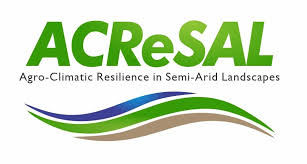Nigerian Government to foster environmental sustainability
The Federal Government has pledged to strengthen collaboration with the Agro-Climatic Resilience in Semi-Arid Landscapes (ACReSAL) to foster long term environmental sustainability in Nigeria.
ACReSAL is a World Bank-financed project which aims to address climate change and land degradation in Nigeria’s northern states.
Mr Mahmud Kambari, Permanent Secretary, Ministry of Environment, said this on Tuesday in Abuja, at a technical session on the presentation and finalisation of the first phase of the developed Strategic Catchment Management Plan (SCMP) for ACReSAL states.
“ACReSAL project seeks to impact 3.4 million direct beneficiaries out of which 1.68 million (49.41 per cent) will be women,” Kambari said.
He noted that the 200 micro catchment management plans at the state levels would fit together with the 20 SCMP.
“Some catchment management plans have been developed in Nigeria by various MDAs, but this is the first time Nigeria will be developing catchment management plans covering a large landmass of this extent.
“The Hadejia Jama’are strategic catchment management plan, was selected to be finalised based on the government’s development priority and the promise to restore the Nguru wetland,”Kambari said.
Mr Richard Pheelangwah, Permanent Secretary, Ministry of Water Resources and Sanitation, represented by Mr Babatunde Segun, Director Water Supply and Support Services in the ministry noted that water was essential in the execution of the project.
“Together, we can make a lasting impact on the Hadeija Jama’are Catchment, ensuring its health, productivity, and viability for years to come,” he said.
Mr Temitope Fashedemi, Permanent Secretary, Federal Ministry of Agriculture and Food Security, stated that the workshop was a significant step forward in the collective efforts to enhance resilience in Nigeria’s semi-arid region.
Fashedemi who was represented by Mr Lawal Mohammed, Assistant Director Agricultural Land land Climate Change Management Services added that the workshop would refine strategies and validate collective vision for a resilient agricultural sector.
Dr Joy Agene Task Team Leader (TTL) for ACReSAL and the Senior Environment Specialist for the World Bank Catchment, noted the need to enlighten communities against the devastating effects of flooding.
She said the World Bank would always work with the states and community dwellers to finalize the document for efficient delivery.
“Under ACReSAL we have something we call the micro catchment management plans, this is done at the community level, It is site specific, however this can only be done by the state,” Agene said.
She however noted that the strategic plan which was being discussed is not done by the state but led by federal government agencies.
Mr Abdulhamid Umar, the National Project Coordinator of ACReSAL said that the project would deliver 20 strategic management catchment plans.
Umar said that the project is a pilot project led by the Ministry of Environment and co supported by the Ministries of Agriculture and Food Security and Water Resources and Sanitation.
NAN / Foluke Ibitomi


Comments are closed.